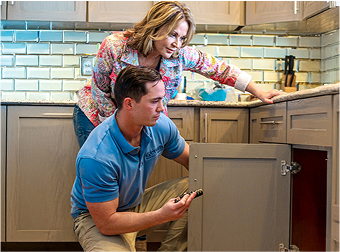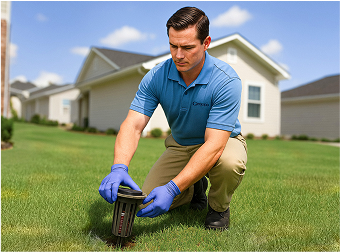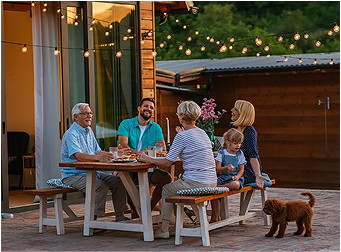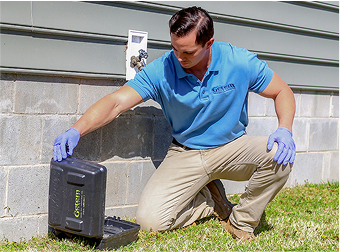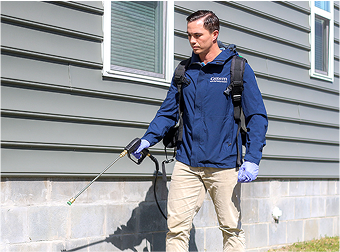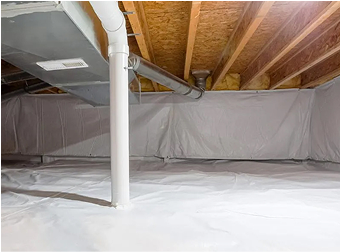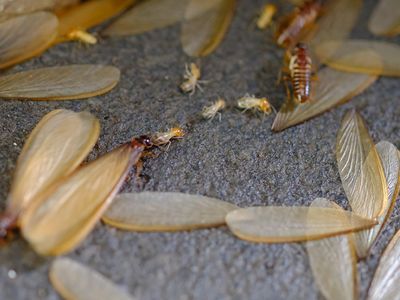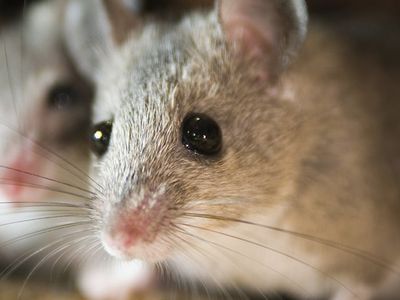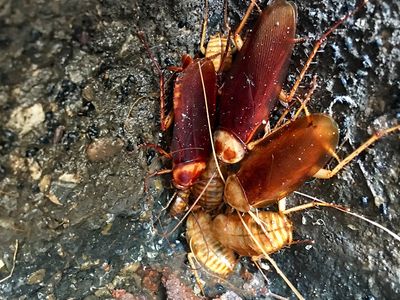Our Guide To Wasps In Virginia
Wasps have a bad reputation—their painful stings and aggressive behavior tend to make them unpopular guests in our gardens. But wasps are actually vital to your yard’s ecosystem, pollinating your landscape and keeping your yard free from harmful insects or larvae. As with anything else though, the more you know about wasps, the better you’ll understand them, so here are the topics we are going to cover:
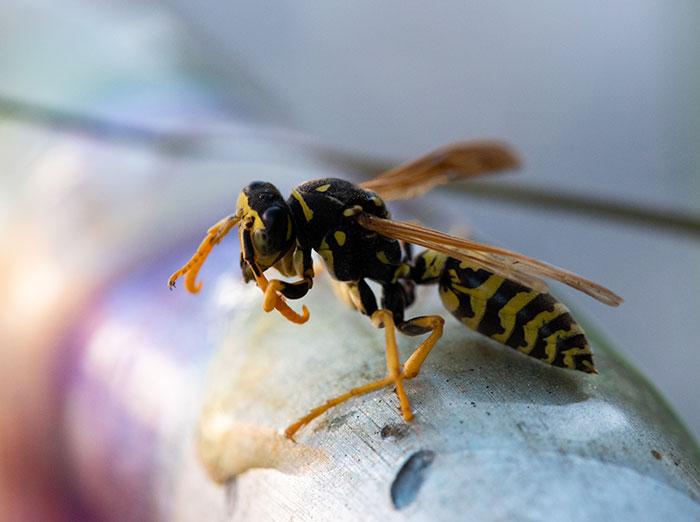
What are wasps?
While often confused with bees, wasps are insects of the order Hymenoptera. They have two sets of wings, six legs, and a narrow, hourglass waist. While most people think of wasps as having yellow and black striped bodies, this is only the case for specific types of wasps—such as yellow jackets or paper wasps. Wasps can actually range in color from metallic blue to solid black or red.
Massively diverse and effectively unchanged for at least 65 million years, wasps can be found on every continent on Earth, except for Antarctica. And with thousands of varieties, some social, others solitary, wasps are generally extremely beneficial to their environments, serving as pollinators and predators to smaller pests.
Common types of wasps in Virginia
As mentioned, wasps come in a variety of sizes and colors. Here are some of the most common types of wasps you can find in Virginia:
Yellow Jackets
Perhaps the most famous and notorious of all wasp species, yellow jackets are commonly found just about anywhere that humans live. These social wasps aren't picky either, building their nests in logs, between walls, in attics, underneath eaves, or even in garbage cans. If you’ve ever hosted an outdoor event where anything sugary was present, you’ve probably met one before and could identify it by its bright black and yellow coloring and aggressive demeanor. Their painful stings are rarely dangerous but can lead to localized irritation and a general sense of fatigue.
Paper Wasps
Easily confused for yellow jackets, paper wasps sport similar black and yellow livery but are slightly smaller in size and choosier about where they make their homes. While they like to build their nests in trees, it’s common to find them in attics, garages, or underneath eaves as well. Their distinctive nests, from which paper wasps derive their name, are made from a mix of saliva, plant stems, and deadwood which comes together to create a gray, paper-like substance. Unlike their more famous cousins, paper wasps aren’t typically aggressive but will sting when disturbed.
Hornets
Hornets are a large sub-variety of wasps unto themselves with tremendous diversity and breadth of distinctive physical characteristics. Here in Virginia though, you’re most likely to encounter the bald-faced hornet and European Hornet (sometimes called the brown hornet or giant hornet). The bald-faced hornet has black and faint-yellow coloring with reddish-brown wings, while the European hornet is more thickly built with vibrant black and yellow striping, red midsections, and orange-tinted wings. Each variety can grow up to an inch in length and will display aggressive behavior toward humans, making it necessary to give them a wide berth.
Mud Daubers
Mud Dauber is a catch-all name for a variety of wasps, all of which make their nests out of mud. These nests can often be found on the sides of buildings. Though diverse in their own right, mud daubers generally have long, slender bodies with heavily pinched midsections and can grow to roughly an inch long. Most are predominantly black in color though some varieties will display yellow or even blue coloration as well. While they’re capable of delivering a painful sting, mud daubers are far less aggressive than many other wasp and hornet species, meaning that stings are quite rare.
Cicada Killers
They might look scary but the cicada killer, also known as Cicada Hawk, is perhaps the most mild-mannered wasp we’ll meet today. These massive wasps grow to two full inches in length, have yellow, black, and brown coloring, and distinctive dull brown eyes and amber wings. Confusingly, it’s only the larvae that actually feed in cicadas. Adult cicada killers actually prefer flower nectar and tree sap.
Their size and coloration might lead you to believe otherwise but these solitary digging wasps pose little threat to humans, only displaying aggressive behavior when directly disturbed. In fact, the males don’t even have stingers! Rare though cicada killer stings maybe though, their stings are notorious for being extremely painful, so proceed with caution within close proximity to a nest.
Wasps vs bees
While wasps and bees are commonly confused, there are several distinct characteristics that you can use to identify if you have wasps or bees in your yard:
Appearance
While a bee has a hairy body, a rounded abdomen and thorax, and stout legs, a wasp has a smooth, narrow body with round, waxy legs, and a cylindrical abdomen and thorax.
Stingers
Bees can only sting once before they die, but most wasps can sting as many times as they want to.
Flying
While the bee's legs are usually hidden when it flies, the wasp has long legs that hang down during flight.
Behavior
Though wasps are generally not aggressive unless threatened, they are more aggressive than bees, especially if you get near their nest.
Diet
Bees feed exclusively on pollen and nectar, making them important pollinators. Though some types of wasps also feed on nectar, most wasps are actually omnivores and feed on common yard pests, such as caterpillars, flies, and crickets.
What attracts wasps?
Like bees, wasps are attracted to the scent of flowering plants. This is both because some wasp varieties feed on nectar while other predatory varieties feed on nuisance garden pests which can be found in abundance where flowering plants grow. Sweet, strong scents are irresistible to most wasp varieties, which explains why yellow jackets, for example, can’t seem to leave you alone during a cookout. Possessing a keen sense of smell though, wasps may even be attracted to strong perfumes, so keep that in mind the next time you do some gardening!
How to keep wasps away
While a wasp’s strong sense of smell can lead it to food, it can also be made to work against them. Some powerful odors have been shown to be highly effective at keeping wasps away, such as:
- Peppermint
- Lemongrass
- Clove
- Geranium
- Citronella
- Thyme
- Eucalyptus
Planting these around your home and garden is an effective, natural wasp repellent, though scented oils or candles are also an easy option. Conveniently, most scents that repel wasps are equally effective at repelling mosquitoes!
Prevent wasps from getting in
When you seal gaps in your home’s exterior, particularly underneath your roof’s eaves, you’re depriving wasps of a place to anchor their nests, making your home an unappealing destination. We recommend consulting a professional to do this, however, to ensure lasting results.
How to get rid of wasps and yellow jackets
If a natural way to get rid of wasps isn’t working though, there are plenty of other methods you can look to. A few of our favorite ways to get rid of wasps and yellow jackets include:
- Setting traps: Any quality hardware store should stock a variety of wasp and yellow jacket traps. These are inexpensive and typically an effective way to reduce the wasp population around your home.
- Using a soap and water spray: For those favoring a DIY approach, a soap and water-based spray can do the job nicely. When sprayed directly to the insects themselves, it clogs their breathing holes (called spiracles) and causes them to die almost instantly. We recommend mixing two tablespoons of dish soap into a quart of water to create an effective, chemical-free insecticide.
- Applying a chemical insecticide: If you’re dealing with aggressive wasps that simply won’t go away, the brute force solution of a chemical insecticide may be the best option. As a wasp swarm can be dangerous, we strongly encourage you to choose a spray can with at least a 20-foot range and to apply the spray at night when wasps are less active and therefore, less likely to retaliate. Additionally, when using any chemical insecticide, store it out of the reach of children and always follow the manufacturer’s instructions.
What to do if I have wasps inside my house
Having wasps in your home can be dangerous, particularly if you or any of your loved ones are allergic to their stings. And while chemical solutions can be effective outside, we understand if you don’t want to spray harsh insecticides around your home. So in the event of an indoor wasp infestation, we urge you to contact Getem Services.
When you do, we'll come out to your home, perform a comprehensive inspection, and develop an effective and personalized wasp control plan to help you take back your home! When it comes to dealing with as potentially hazardous a pest as wasps, it pays to have an expert on your side, so don’t hesitate to contact our team of Norfolk exterminators today get in touch today.



